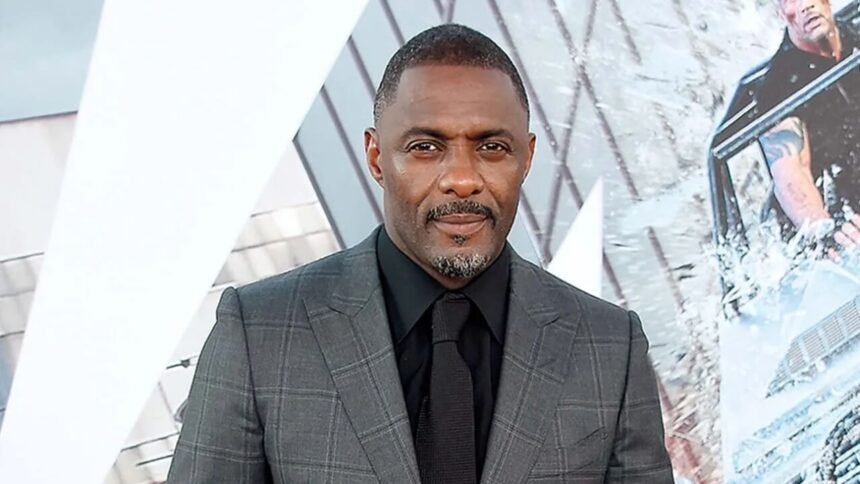For decades, James Bond has been the epitome of suave, danger, and espionage. The franchise has seen many iconic actors take on the role—from Sean Connery’s rugged charm to Daniel Craig’s modern intensity. Recently, the idea of Idris Elba as James Bond has sparked heated debates, enthusiastic support, and widespread speculation across the globe. With his magnetic screen presence and versatile acting range, Elba is not only a fan favorite but also a strong candidate to redefine 007 for a new generation. The discussion goes beyond mere casting; it raises questions about representation, cultural shifts, and the evolution of one of cinema’s most beloved characters.
The Legacy of James Bond and Its Evolution
James Bond has always been more than a character; he’s a cultural icon. Introduced in Ian Fleming’s novels in the 1950s, Bond epitomizes sophistication, resourcefulness, and a certain daring masculinity. Each actor who has donned the tuxedo has brought a unique flavor to the character. Sean Connery’s charisma set the foundation, Roger Moore added charm and wit, Pierce Brosnan brought elegance, and Daniel Craig infused raw realism and grit.
However, the franchise has also faced criticism. Many argue that the classic Bond formula can feel outdated, particularly in terms of gender representation and cultural diversity. As audiences become more global and socially aware, the expectations for the next Bond are evolving. Here, the potential casting of Idris Elba as James Bond isn’t just about a new face—it’s about aligning the franchise with contemporary sensibilities without losing its iconic appeal.
Why Idris Elba Is a Perfect Fit
Idris Elba is not a newcomer to action-packed roles. From his time as the heroic Stringer Bell in The Wire to the commanding Heimdall in the Thor series, Elba demonstrates an impressive range, combining gravitas with charisma. His presence on screen commands attention, a quality essential for the next iteration of 007.
Moreover, Elba’s physicality and nuanced performance style make him a believable action hero capable of executing complex stunts and embodying Bond’s suave sophistication. As film critic James King notes, “Elba has a natural screen magnetism that could bring depth and modern appeal to James Bond, without sacrificing the character’s legendary charm” [1].
Transitioning to a diverse lead also allows the franchise to refresh its storytelling, explore new cultural dimensions, and resonate with a wider audience. In many ways, casting Elba would signify that Bond is not confined by race but defined by qualities like intelligence, resilience, and daring, which remain central to the character.
Cultural Significance and Audience Reception
The discussion surrounding Idris Elba as James Bond reflects a broader cultural shift in Hollywood. Fans and critics alike have praised the idea as a step toward greater inclusivity, demonstrating that iconic roles can transcend traditional casting norms. Social media buzz, online petitions, and entertainment forums reveal strong support for Elba, particularly from younger audiences who value representation and diversity in leading roles.
However, some purists argue that Bond’s British identity is tied to a certain white male archetype. While it’s true that Ian Fleming created a specific character, the essence of 007—sophisticated, resourceful, and courageous—is not inherently linked to ethnicity. By embracing Idris Elba, the franchise would honor Bond’s core traits while evolving with the times. It’s a delicate balance between tradition and innovation, one that could reinvigorate the franchise for decades to come.
Comparing Elba to Past Bonds
Analyzing Idris Elba’s potential as James Bond inevitably invites comparisons with his predecessors. Unlike Sean Connery’s unflinching toughness or Daniel Craig’s emotional depth, Elba offers a blend of elegance, raw power, and relatability. This combination could attract audiences who seek both the classic Bond allure and a fresh, modern twist.
Elba also brings a unique global appeal. As a celebrated actor with experience in both American and British cinema, he bridges different cultural audiences, making him a strategic choice for the franchise’s international market. In essence, Idris Elba could maintain Bond’s enduring appeal while expanding the character’s cultural relevance.
Potential Challenges and Opportunities
Casting Idris Elba as James Bond would not be without its challenges. The franchise carries immense legacy pressure, and fans have high expectations for any new iteration. Marketing the transition successfully would require careful narrative framing, ensuring that audiences see Elba not as a departure from Bond’s identity but as an evolution.
Yet, this challenge also presents opportunities. A modern Bond led by Idris Elba could explore diverse storylines, tackle contemporary geopolitical themes, and delve deeper into character psychology. The opportunity to introduce a Bond who reflects today’s globalized society is unparalleled and could set a precedent for future reimaginings of classic characters.
The Industry Perspective
Film executives have long recognized Idris Elba’s star power and versatility. With a track record of box office success and critical acclaim, Elba offers both financial reliability and creative credibility. Industry analyst Rebecca Foster emphasizes, “Elba has the charisma and depth required for a leading role like Bond. Casting him could rejuvenate the franchise while appealing to both long-time fans and new viewers” [1].
Moreover, Hollywood is increasingly prioritizing diversity, making the casting of Idris Elba not only a bold creative choice but a commercially intelligent one. Beyond entertainment, it sends a message about inclusivity and evolving audience expectations, reinforcing that iconic roles can and should reflect contemporary society.
Fan Speculation and Social Media Buzz
Online discussions show that fan enthusiasm for Idris Elba as James Bond is vibrant. Twitter hashtags, Instagram fan art, and YouTube opinion videos suggest that audiences are ready for a dynamic shift. Many fans envision Elba bringing both gravitas and a modern edge to the role, challenging the perception that Bond must conform to a rigid mold.
Interestingly, the debate itself generates publicity, keeping the franchise in cultural conversation even before any official announcements. This speculative excitement could be strategically leveraged by producers, demonstrating the power of casting speculation in contemporary media.
What This Means for the Future of the Franchise
Embracing Idris Elba as James Bond represents more than casting—it signals a franchise willing to evolve. Future storylines could integrate contemporary themes such as global security threats, cyber warfare, and complex moral dilemmas, all framed through the lens of a sophisticated, culturally aware Bond.
Additionally, casting Elba could open doors for new narratives that diversify the supporting cast, enhance character depth, and introduce fresh perspectives. By reimagining Bond in this way, the franchise maintains relevance while honoring its heritage, ensuring longevity in an increasingly competitive entertainment landscape.
Conclusion: A Bold Choice for a New Era
The conversation around Idris Elba as James Bond highlights a pivotal moment in cinematic history. Elba’s combination of charisma, versatility, and global appeal positions him as a transformative candidate for the role. While some debate may arise from tradition, the benefits of a modern, inclusive, and dynamic Bond are compelling.
Ultimately, casting Idris Elba would reflect not only a shift in the portrayal of a beloved character but also a broader evolution in cultural values and cinematic storytelling. If executed thoughtfully, this bold choice could redefine James Bond for a new generation, proving that legends can evolve without losing their essence. As audiences continue to envision Elba in the tuxedo, one thing becomes clear: the legacy of 007 is ready for a powerful, modern reinvention.
you may also like
Jodie Turner: An Emerging Superstar who has made a Difference in the Future of Acting






